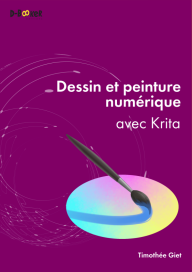This post is about how we met KITE‘s team and visited some schools during our family visit trip in Kerala. For those who don’t know, KITE stands for “Kerala Infrastructure and Technology for Education”; they are in charge among other things of the GNU/Linux distribution for Kerala schools and training teachers to use it. GCompris is used a lot there, as it is the main software used in their ICT curriculum textbooks for classes I to IV. The widespread and official use of Free Software in Kerala schools really is an awesome model.
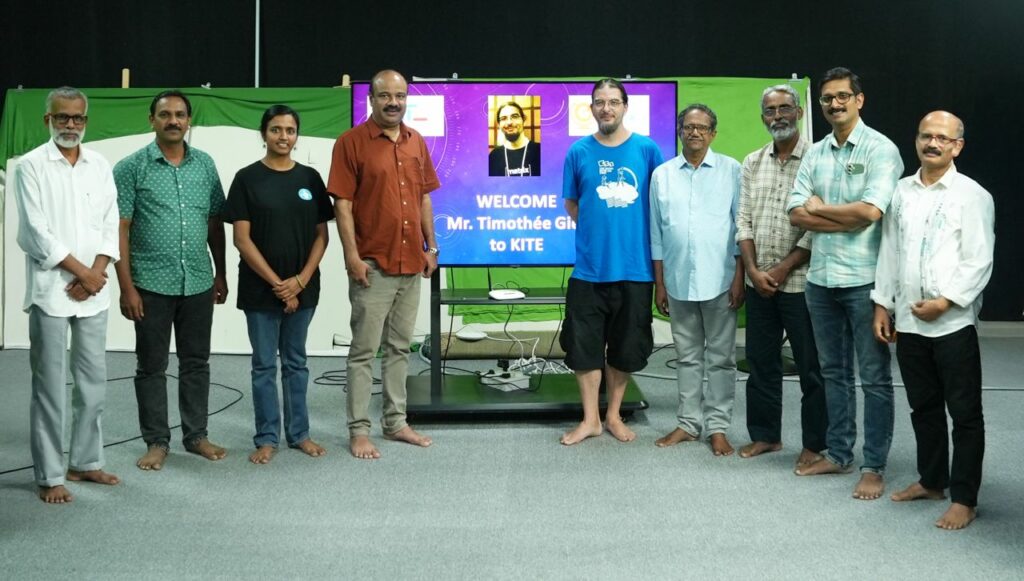
The connection with KITE happened thanks to Aiswarya’s sister’s husband, Karunraj K. He recently got hired by KITE, so even before going we knew we would try to meet some of their team. During some discussions with him, I understood they did some small customization to their GCompris package to fit their specific needs, but most importantly they added translations and voices for Tamil and Kannada languages. They need those with Malayalam and English as the Kerala state shares borders with Karnataka and Tamil Nadu, so they have many pupils in border areas speaking those languages. Of course my first reaction was to look for their sources to upstream those translations and voice files missing from our GCompris package. Sadly, after searching through their distribution and online, the sources were nowhere to be found, the only way to get them was to ask for it. This was one more motivation to get in touch with their team.
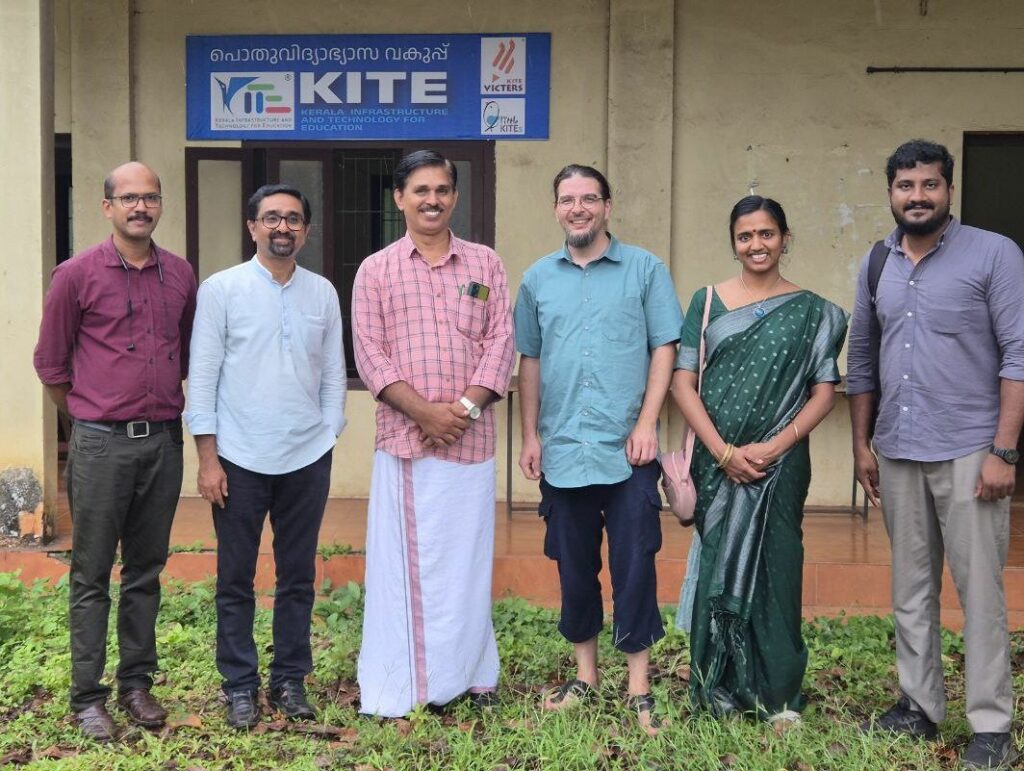
Karunraj invited us to visit KITE’s office of Kannur district, where we were warmly greeted by the local team. We met Surendran Aduthila (head of the local team), with whom we could start discussing several topics, including how to get their translation files. He made some calls to investigate the issue, and soon enough we got in contact with KITE’s CEO Anvar Sadath who invited us for a meeting at KITE’s headquarters in Trivandrum a few days later.
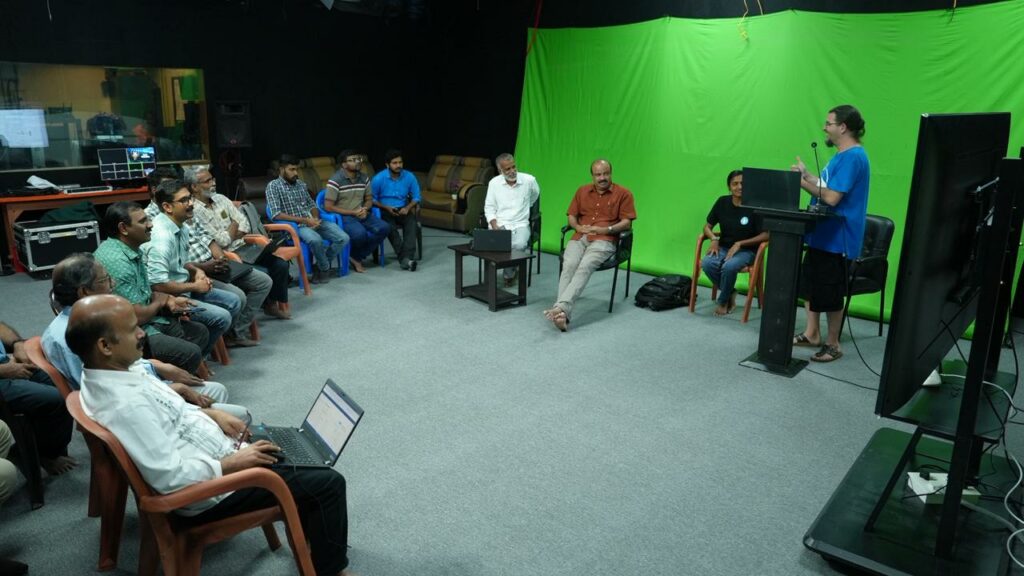
For this meeting, they also invited several team members from various districts involved in their GNU/Linux distribution and software development projects. First, I explained how important it is to publish their sources, especially for customized Free Software packages, ideally using both some public git repositories and the standard way to publish source packages for debian-based distributions. Using public git repositories could also help them to organize their work, and allow some external contributions. It seems they understood it clearly, and decided to follow this path.
I showed them for reference the French education forge portal, which includes a dedicated gitlab instance for teachers to host and share their projects (mostly software and tutorials), and a dedicated instance of matrix chat server for internal communications. They looked very interested, and discussed about how they could do something similar and reuse some of the educational content available from this forge. I also showed them the work from Primtux, the French GNU/Linux distribution for primary schools, which has a lot in common with their own distribution.
We discussed about how we could collaborate, like how it would be better for their translation team to work directly with us, or how we could develop some new activities together. We also discussed especially about how GCompris is used for children with special needs, and how the coming “GCompris-teachers” (a new side application we are working on, allowing teachers to create customized datasets and analyze pupils results) could be useful for this use case. And I spent some time with the head of their GNU/Linux distribution project, Abdul Hakeem, giving various tips, especially to improve their customized packaging of GCompris. And of course I could get those wanted translation and voice files from his computer, with all the necessary info to add them to our repositories 🙂
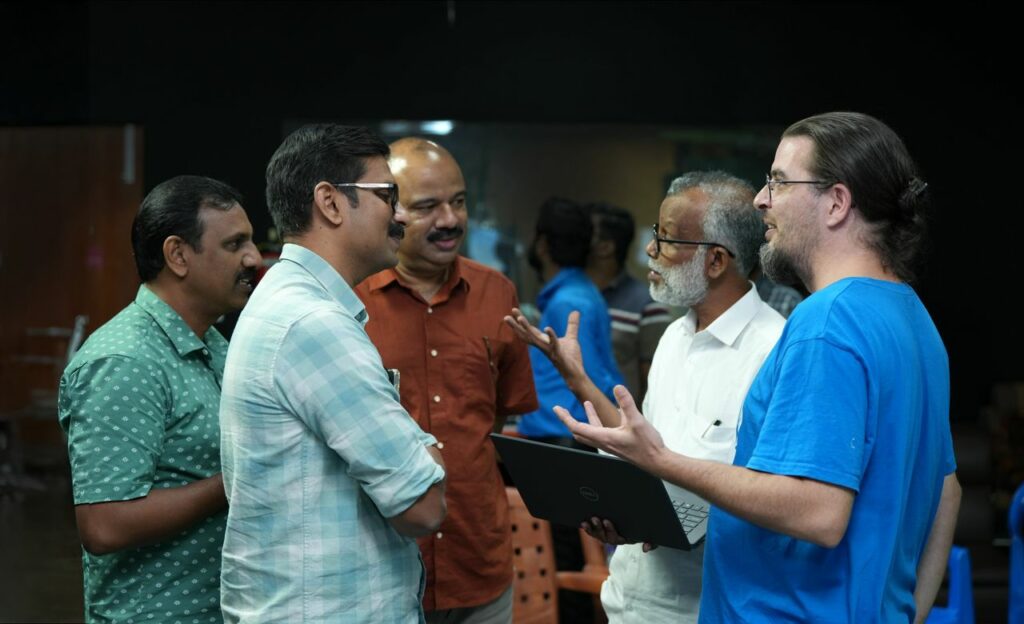
Also, I gave them some tips about how to turn some of their in-house software into proper Free Software projects, as it is something they were interested to do but were missing some insights about how to proceed.
Finally, Aiswarya shared her experience with Kerala’s Free Software based education and how it helped her to build her career. Also, she helped me a lot during the meeting when translating some things to and from Malayalam was needed.
Globally it was a very tight-scheduled session, but I think we could cover all the most important topics. I’m very happy of this meeting, and looking forward to future collaborations.
It was covered by the press, and an article was published in The Hindu newspaper the next day (original article behind a paywall).

Two days later, I was invited to Kannur district’s “IT MELA” (IT Fair), a yearly school event with some competitions on IT topics. On this day was the digital painting contest, which I was very interested to attend: pupils had one hour to paint an image on a given subject, using either Krita or GIMP and a mouse(!). Digital painting without a graphic tablet is super difficult, so I was very impressed to see what those pupils could achieve this way. There was also a Malayalam typing contest (using a special in-house software to track typing), and a web design contest. Again I was super impressed to see what some pupils could produce in one hour with pure HTML+CSS (no frameworks allowed).
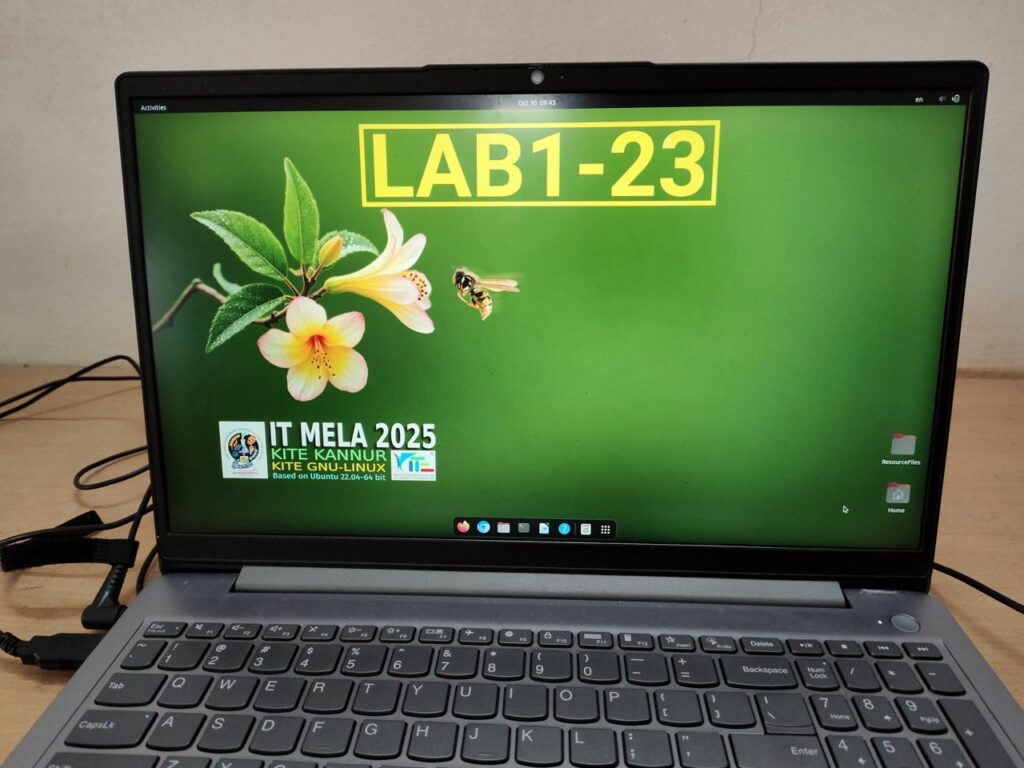
This time again my visit was covered by the press, and the next day almost all local Malayalam newspapers had an article about it.

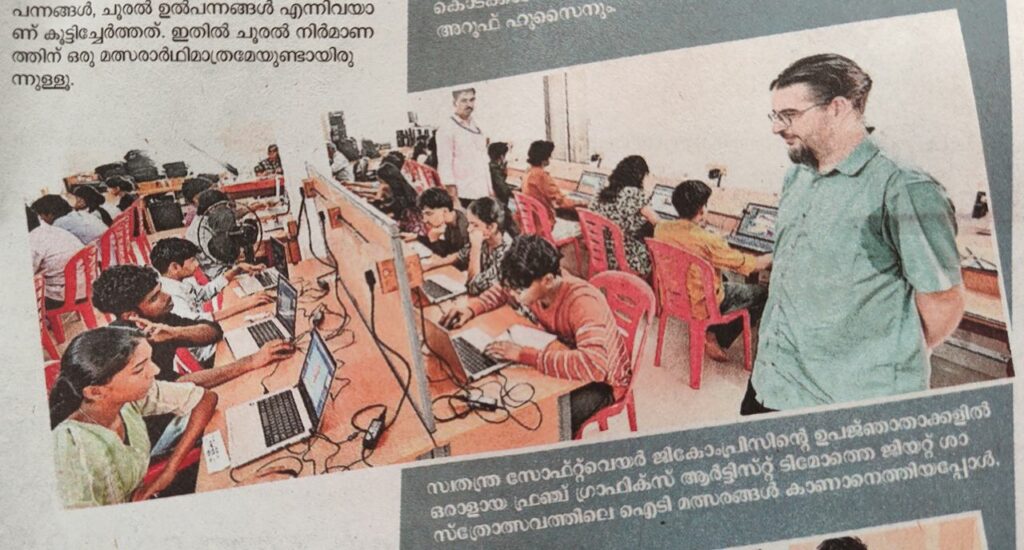
Finally, I had the chance to visit Kuttiattoor’s primary school where I made a little speech to pupils about the importance of Free Software in education. The teachers showed me the ICT “PLAYBOX” textbooks, and gave me an English hard copy of the book for class I.
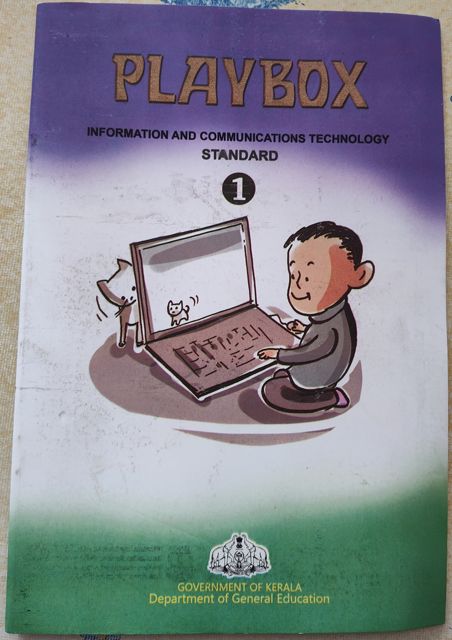
I’d like to thank again all those who were involved in the meeting organization, the IT MELA visit and the school visit. And thanks a lot to our family in India for the support!

